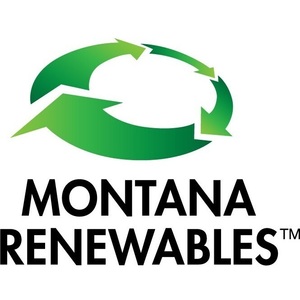Calumet celebrates first production, initial shipments of SAF

May 10, 2023
BY Erin Krueger
Calumet Specialty Products Partners L.P. on May 10 celebrated the first production and initial shipments of sustainable aviation fuel (SAF) from its Montana Renewables subsidiary, which operates a biorefinery located in Great Falls, Montana.
Calumet in February 2021 announced plans to produce renewable diesel at its petroleum refinery in Great Falls by reconfiguring its oversized hydrocracker to process renewable feedstocks, producing renewable diesel and SAF.
Calumet in December 2022 reported the biorefinery had generated a full month of on-spec renewable diesel and had commenced rail shipments of the product. At that time, the facility had the capacity to produce 6,000 barrels per day.
During a first quarter earnings call, held May 5, Calumet CEO Todd Borgmann confirmed that the biorefinery’s renewable hydrogen plant was commissioned during the first quarter. He also noted that the feedstock pretreatment and SAF units were brought online in April. The renewable hydrogen, pretreatment and SAF systems have increased renewables capacity to approximately 12,000 barrels per day.
Advertisement
The company previously reported that initial SAF capacity will be in the range of 2,000 to 4,000 barrels per day. The company is also considering a pivot to what it calls max SAF, which would expand total renewables capacity to 18,000 barrels per day, including 15,000 barrels per day of SAF. Borgmann earlier this year said Calumet has already purchased the reactor needed to implement the max SAF expansion, ensuring that the company can move quickly if it decides to move forward with the expansion or brings in a partner that wants to progress the project expeditiously.
According to Calumet, the initial SAF produced by Montana Renewables is being supplied to Shell Trading (US) Co. under a multi-year agreement.
"We're proud to collaborate with Shell to improve aviation sustainability," said Bruce Fleming, CEO Montana Renewables. "Strong support from the State of Montana, Cascade County, and the City of Great Falls made possible the unique speed of Montana Renewables, and Shell is the logical offtake partner for us to reach multiple airlines and airports from our geographically advantaged site. We are now producing more SAF than any other North American company on top of our renewable diesel and renewable hydrogen."
Advertisement
"We're excited to be working with Montana Renewables to bring together the right mix of technical expertise and operational capabilities to help increase access to SAF production in the US for our customers, including Delta, Alaska and JetBlue, to power progress in aviation," said Christine Bassitt, general manager of Shell Aviation Americas.
In April, Delta announced an agreement to purchase 10 million gallons of neat SAF from Shell. "This is a great example of the kind of action and investment needed in states across our country that we need to meet our aggressive SAF goals as an industry," said Pam Fletcher, chief sustainability officer at Delta Air Lines. "There's not enough SAF being produced today to power the world's commercial airlines for a single day, so we're grateful to everyone at the State of Montana, Montana Renewables and Shell for providing the incentives and taking meaningful steps toward scaling production of this largest known lever we have for decarbonizing aviation."
Related Stories
Avfuel Corp., the leading independent supplier of aviation fuel and services, is expanding its sustainable aviation fuel (SAF) footprint with the addition of a new, strategic supply point in Denver, Colorado—the first of its kind in the region.
CVR Energy Inc. on July 30 reported its renewables segment achieved increased throughput during Q2 despite unplanned downtime but reported a net loss of $11 million. The company expects to retroactively claim the 45Z credit for volumes produced.
Total U.S. operable biofuels production capacity expanded in May, with gains for renewable diesel and a small decrease for ethanol, according to data released by the U.S. Energy Information Administration. Feedstock consumption was up.
SAF-producer XCF Global Inc. on July 28 announced it has signed an exclusive, non-binding indication of intent (IOI) with a renewable fuels infrastructure and feedstock solutions company based in the western U.S.
The abrupt closure announcement by Biox Corp. is the latest example of a failure to secure Canada's domestic energy supply, says Unifor. The Canadian energy union is advocating for simply regulatory changes that could help restart the facility.
Upcoming Events










